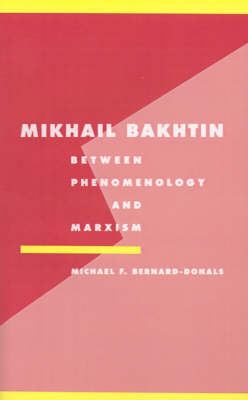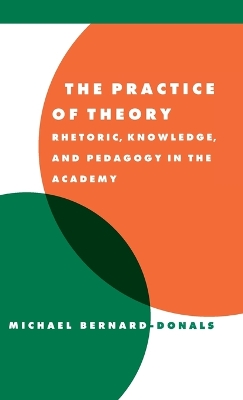Literature, Culture, Theory
2 total works
The language theory of Mikhail Bakhtin does not fall neatly under any single rubric - 'dialogism,' 'marxism,' 'prosaics,' 'authorship' - because the philosophic foundation of his writing rests ambivalently between phenomenology and Marxism. The theoretical tension of these positions creates philosophical impasses in Bakhtin's work, which have been neglected or ignored partly because these impasses are themselves mirrored by the problems of antifoundationalist and materialist tendencies in literary scholarship. In Mikhail Bakhtin: Between Phenomenology and Marxism Michael Bernard-Donals examines various incarnations of phenomenological and materialist theory - including the work of Jauss, Fish, Rorty, Althusser, and Pecheux - and places them beside Bakhtin's work, providing a contextualised study of Bakhtin, a critique of the problems of contemporary critics, and an original contribution to literary theory.
Though theory has become a common language in the humanities in recent years, the relation between theoretical speculation and its practical application has yet to be fully addressed. In The Practice of Theory, Michael Bernard-Donals examines the connection between theory and pedagogy at the level of practice. He asks how such a practice works not only to change the way we read and speak with one another, but also the conditions in which these activities become possible. Bernard-Donals argues that the most sophisticated practice linking pedagogy to theory is rhetoric, but the version of this tradition in thinkers like Rorty and Fish is never broad enough. The conception of rhetoric he proposes instead is linked to other human and natural sciences. The practice of theory investigates the degree to which a materialistic rhetoric can reinvigorate the link between theory, teaching and practice, and offers a sustained reflection on the production of knowledge across a broad range of contemporary disciplines.

